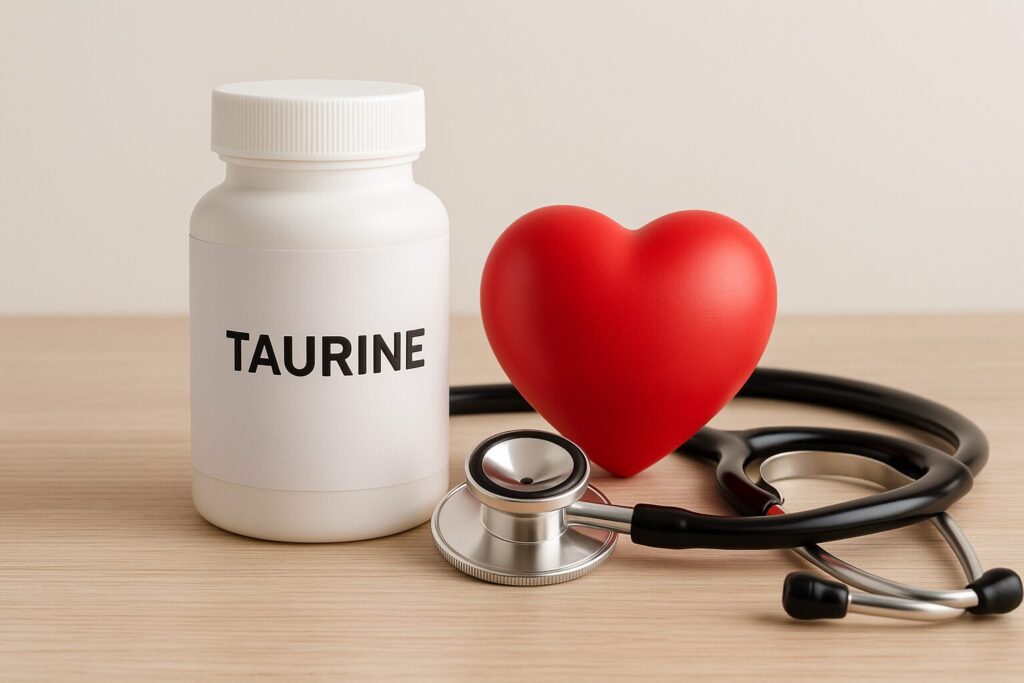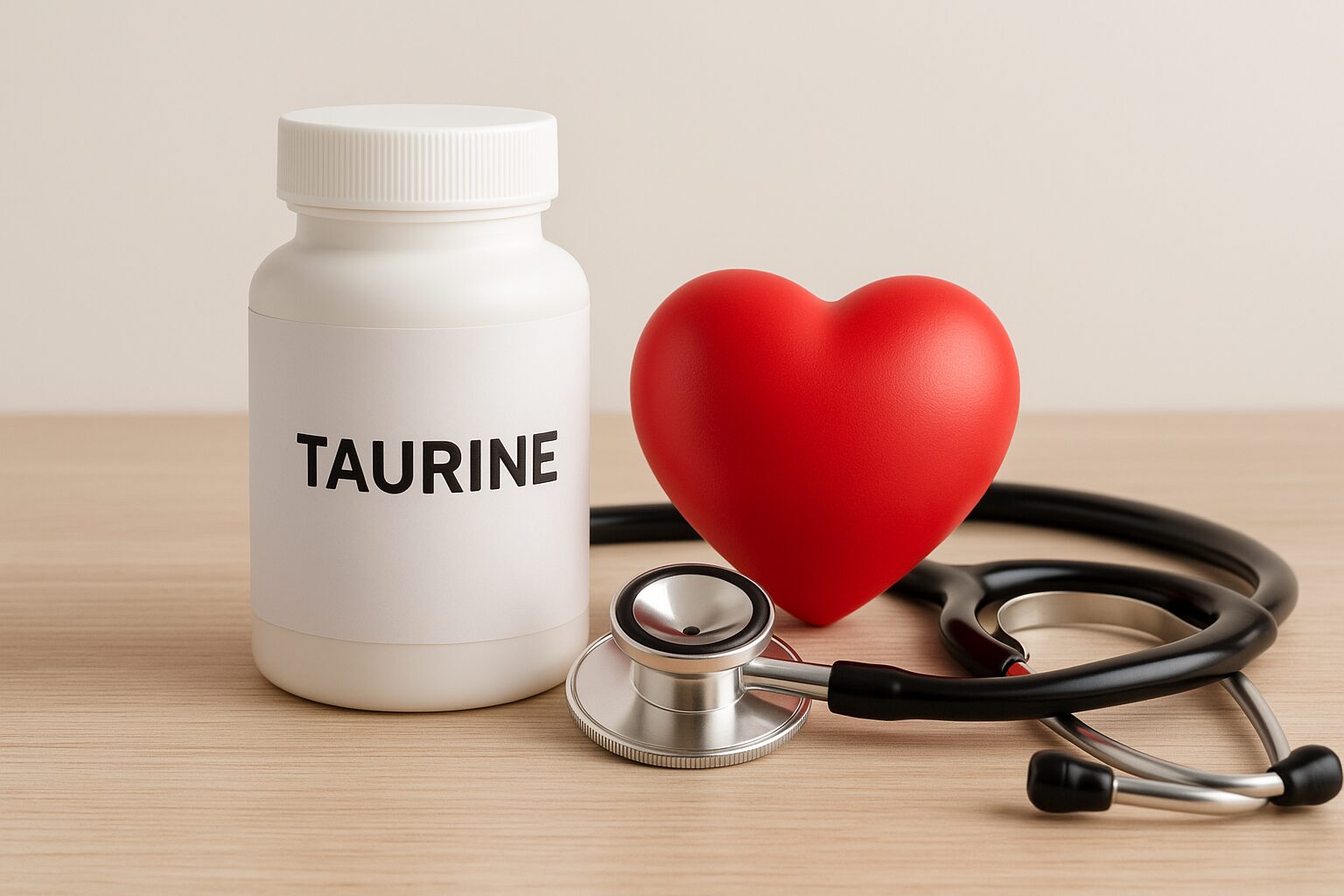Taurine is often known as a common ingredient in energy drinks, but in fact it is a naturally occurring amino acid–like compound that plays many roles in the body. It is especially concentrated in the heart and vascular tissues, which is why it is closely linked to cardiovascular health. This article explores how taurine may influence blood pressure, cholesterol balance, circulation, and overall heart function.

1. What Is Taurine?
Taurine is a conditionally essential compound that the body can produce in small amounts, but it is also obtained from diet. It supports nerve transmission, electrolyte balance, bile acid formation, and cellular protection. Because it is abundant in the heart muscle, it has drawn attention for its potential effects on cardiovascular health.
2. Blood Pressure Regulation
Taurine may help promote relaxation of blood vessels and support sodium balance, which could contribute to healthier blood pressure levels. By reducing oxidative stress and improving vascular function, it may help people who aim to maintain stable circulation and reduce strain on the heart.
3. Cholesterol and Lipid Metabolism
Taurine has been studied for its potential to assist with cholesterol management. It may encourage bile acid production, which helps break down fats and regulate cholesterol levels. This could support lower LDL (“bad”) cholesterol and healthier HDL (“good”) cholesterol levels, contributing to vascular protection.
4. Circulation and Vascular Support
Taurine may help protect the endothelium, the inner lining of blood vessels, supporting better circulation. Improved blood flow may reduce the risk of vascular stiffness and could help with peripheral circulation, which is important for overall cardiovascular wellness.
5. Heart Function and Protection
As a compound concentrated in the heart, taurine may help maintain proper contraction and relaxation of heart muscle cells. Some research suggests it may play a role in reducing arrhythmia risk and supporting cardiac output, making it potentially useful as a complementary nutrient for heart function.
6. Antioxidant and Anti-Inflammatory Effects
Taurine may act as an antioxidant, reducing free radical damage, and also may help calm inflammatory responses. Since oxidative stress and inflammation are linked with heart disease, this property could be one reason taurine is considered supportive for cardiovascular health.
7. Food Sources of Taurine
Taurine is naturally found in seafood such as squid, shellfish, and fish, as well as in meats. People with limited intake of these foods may have lower dietary taurine levels, though the body can still produce some taurine on its own.
8. Supplements and Dosage
Taurine supplements are commonly available, and typical amounts range from 500–2000 mg per day. It is generally considered safe, but some people may experience mild digestive discomfort with high doses. Individuals with specific health conditions should seek professional advice before starting supplementation.
🌿
Taurine is more than just an energy drink ingredient—it is a compound that may help support heart and vascular health. By contributing to blood pressure regulation, cholesterol balance, circulation, and antioxidant defense, taurine could play a valuable role in a well-rounded lifestyle. However, effects may vary by individual, and balanced diet and exercise remain the foundation of cardiovascular wellness.
References and Further Reading
National Institutes of Health (NIH) – Taurine Overview
World Health Organization (WHO) – Nutrition and Heart Health
Harvard T.H. Chan School of Public Health – Cardiovascular Support Nutrients
※ This article is for general informational purposes only. Individual needs and responses may vary, and professional guidance is recommended before supplementation.
